Enemies thaw? Sabalenka admits long talks with Zheng Qinwen at Wuhan Open led to friendship, having never communicated before.
Locker room friendships in women's tennis have always been a hot topic. Recently, when many fans saw Zheng Qinwen chatting warmly with her former biggest rival Sabalenka at the Wuhan Open opening ceremony, the tennis community buzzed with speculation about the nature of their relationship.

It is well known that Sabalenka has been one of Zheng Qinwen’s toughest opponents in her career. Since their first meeting at the 2023 US Open, Zheng has only won once in eight encounters. For China’s top player Zheng Qinwen, she has openly admitted on many occasions that Sabalenka is the biggest “enemy” standing in the way of her Grand Slam dreams, and she is willing to do whatever it takes to defeat her. Thus, every match between them has been like “enemies meeting, eyes blazing,” with some fans dubbing their rivalry the new era’s “Williams-Sharapova showdown.”
Notably, besides their fierce battles on court, their verbal exchanges off court have also been lively. Almost every time Zheng lost to Sabalenka, it sparked new controversies. This year at the Rome tournament, Zheng’s first victory over Sabalenka even made her a trending topic in China. However, after that match, both players exchanged sharp comments: Sabalenka blamed fatigue from continuous play for her poor performance, while Zheng claimed she had found a way to beat Sabalenka and boldly declared, “Mountains and seas can be conquered!”
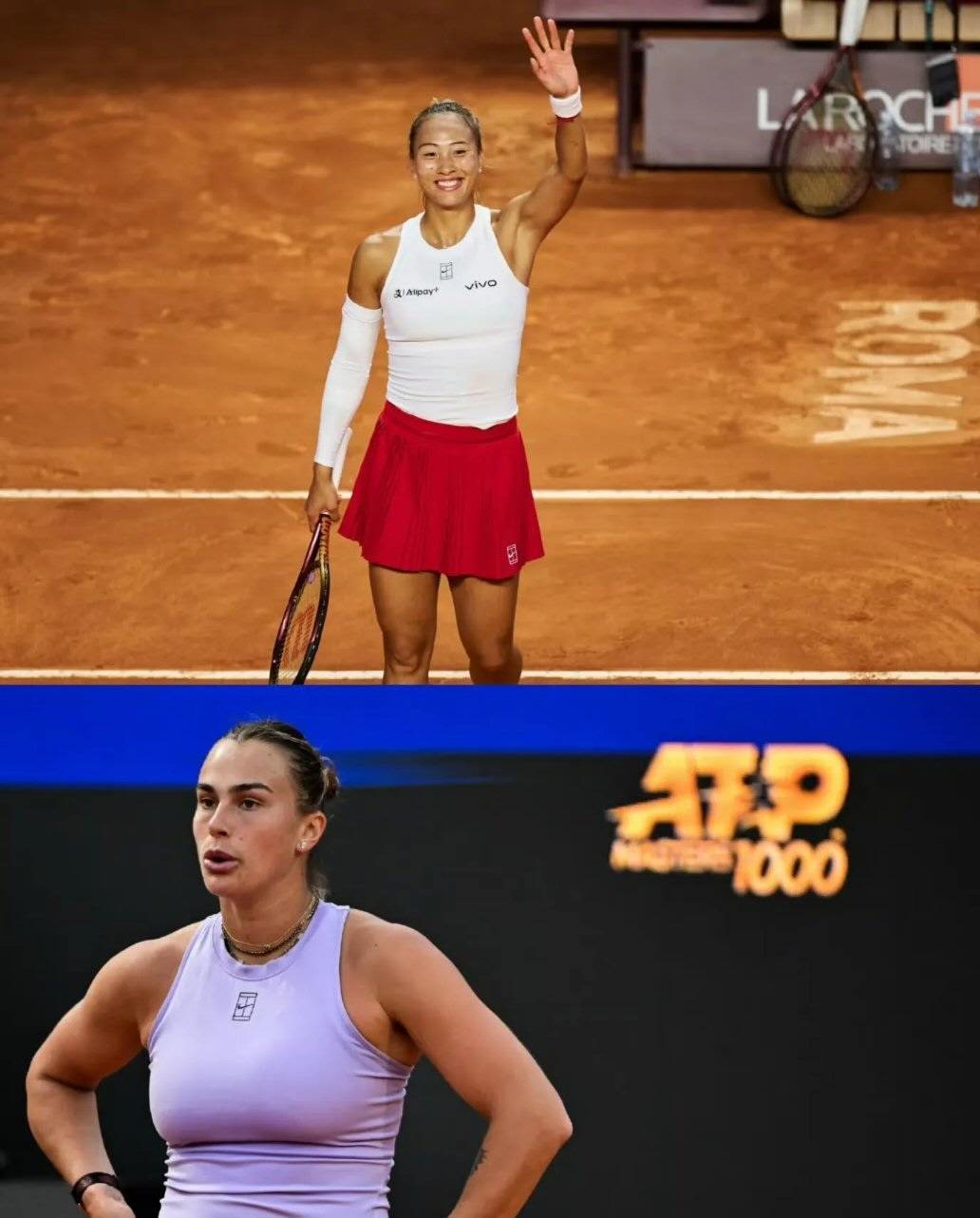
The verbal duel reached its climax shortly after at the French Open: in the women’s singles quarterfinal, Zheng lost her lead and was overturned by Sabalenka, missing out on the semifinals. After the match, Zheng even shed tears on court, and when Sabalenka went to comfort her, she was coldly ignored — a memorable scene from that year’s French Open.
Yet, despite their “fierce rivalry,” these two were seen chatting happily at the Wuhan Open opening ceremony this year, a moment that surprised many fans.

Some fans commented, “Have they really broken the ice?? Hard to believe! These two used to refuse to accept each other!” However, others think it might have been just a business-like “small talk,” since maintaining appearances is still important. Some fans also believe that since Zheng Qinwen’s ranking has dropped due to injury and she no longer competes directly with world No.1 Sabalenka, their conversations have become more relaxed. After all, most tennis players get along well privately despite on-court competition.
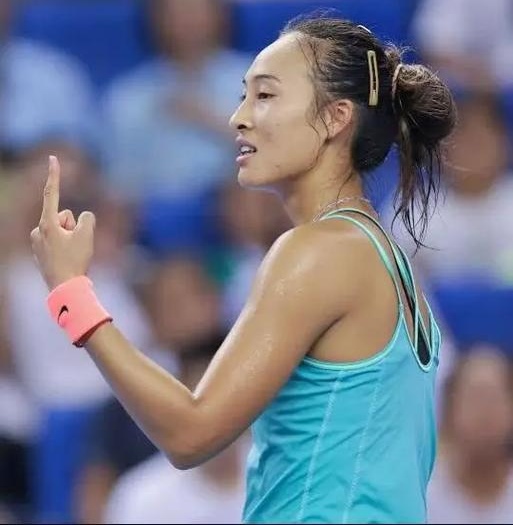
Facing much speculation, tennis star Sabalenka shared in a pre-match interview at the Wuhan Open about her off-court interactions with China’s top player Zheng Qinwen. She emphasized that their relationship now is “rivals on court, friends off court,” a statement that caused quite a stir in the tennis community.
Sabalenka admitted that she and Zheng had hardly ever truly communicated before: “That was the longest interaction we've had, I must say. Before that, we never really greeted each other because she is very focused on certain things, and I am too.”
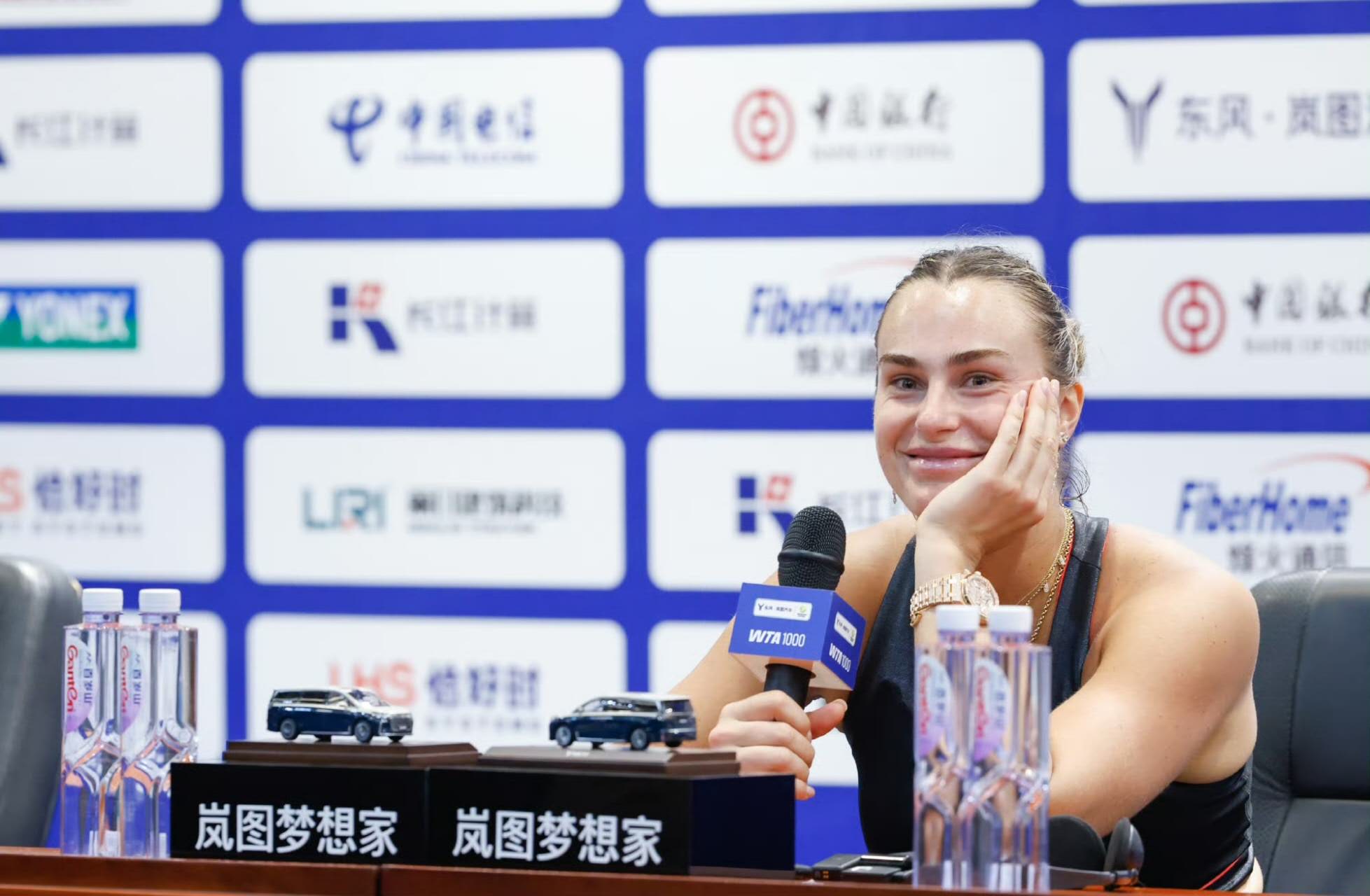
What surprised her more was Zheng’s attitude: “We talked about many different things. She said that since we don’t have rackets in hand now, she was willing to make friends through conversation. When there are no matches, we can be friends.”
Sabalenka also specifically mentioned Zheng’s understanding of balancing competition and personal relationships: “It’s okay, you will learn. You know how to balance the two.” This seems to hint that China’s top player Zheng Qinwen has adopted a new attitude toward interpersonal relations in tennis, as she previously emphasized in interviews that she would never make friends on tour.
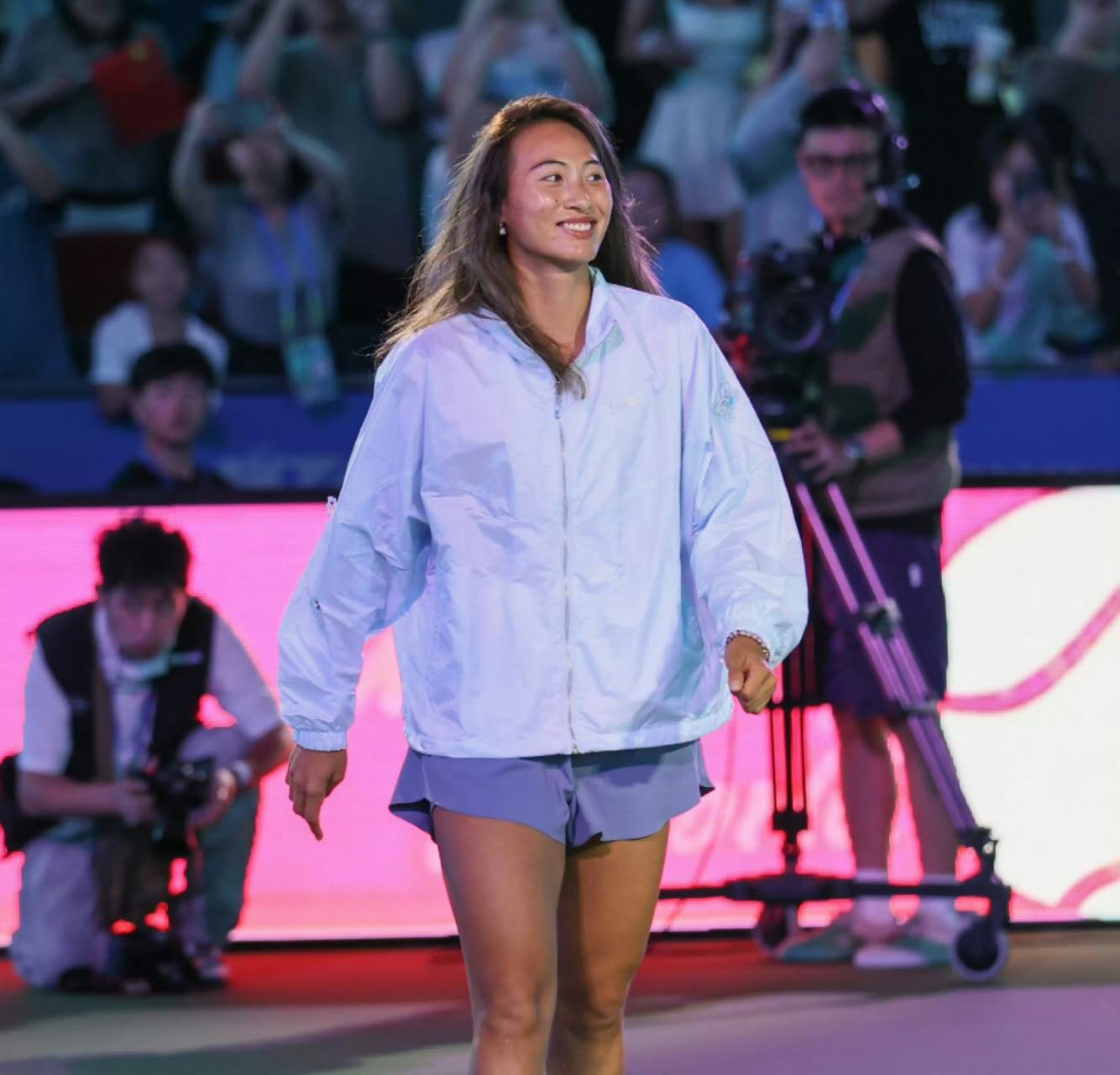
A veteran tennis commentator wrote on social media: “Seeing the new generation of players separate on-court rivalry from personal relationships is truly inspiring. It shows the psychological maturity of modern athletes. Intense competition shouldn’t mean personal hostility.”
Many fans expressed similar views: “This is the true spirit of sports,” “Giving your all in competition but respecting each other off court is what healthy sports culture is about.”
However, traditionalist commentator Mark Peterson disagreed: “Tennis is an extremely psychological sport, and the greatest rivalries in history often rely on a certain distance. Being overly friendly might dull the competitive edge on court.” Another self-proclaimed veteran fan commented, “The mutual respect between Nadal and Federer was never maintained by chatting off court. Forced friendships might kill the killer instinct during matches.”

In fact, the interactions between Zheng Qinwen and Sabalenka reflect a trend among the new generation of players. Compared to their predecessors, young players on tour today are better at separating fierce competition from their personal lives.
Sabalenka also expressed hope for this new relationship in the interview: “But she’s a nice person. I think we have a good relationship now, and I hope to build new friendships on tour. Let’s wait and see when we can chat about other topics during matches.”
Whether this “switchable” interpersonal style will affect match quality remains to be seen. But undeniably, the traditional definition of rivalries in tennis is being rewritten.
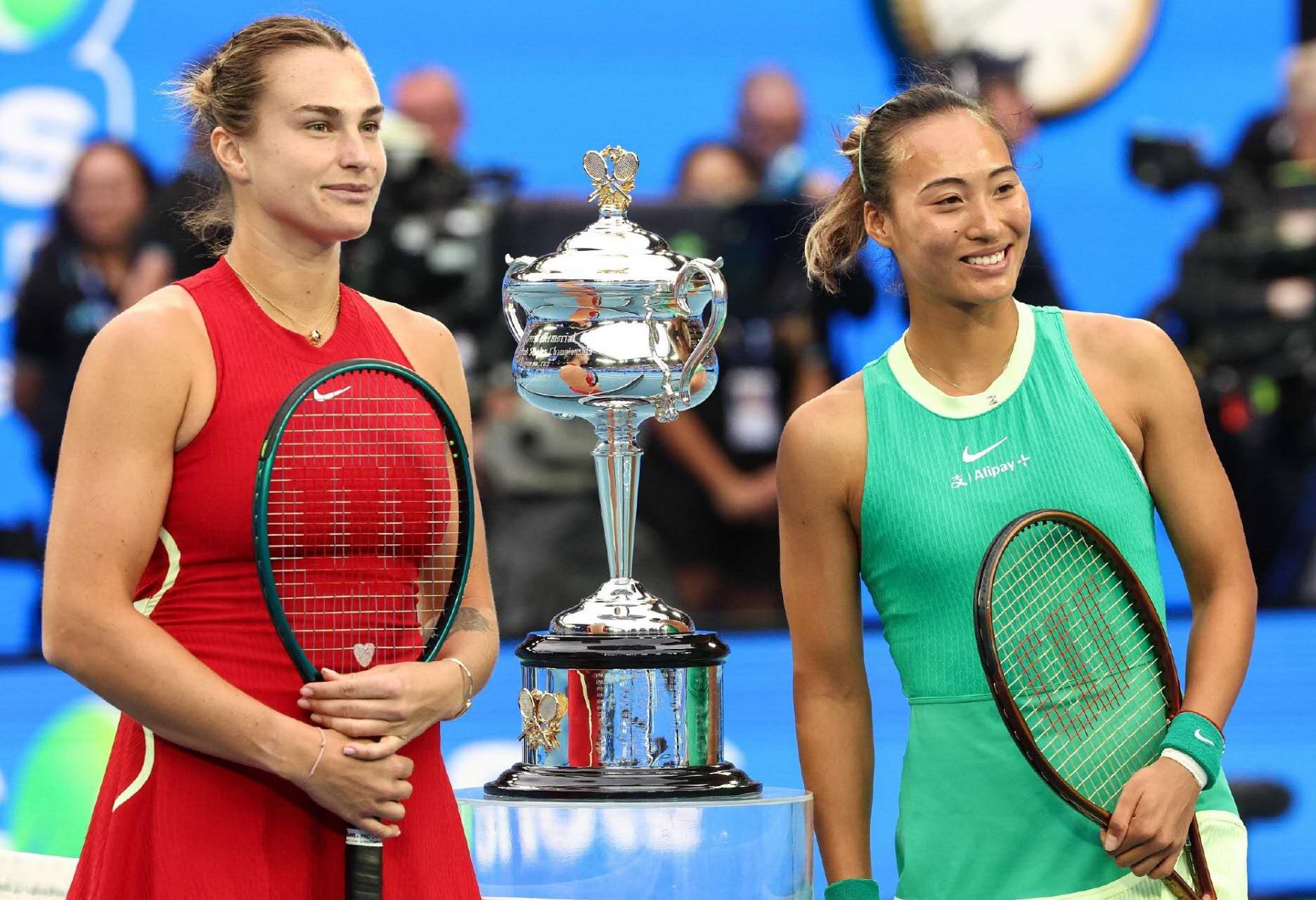
Some fans said, “Imagine Zheng Qinwen chatting amicably with a Grand Slam champion, then beating her in the next match — what a beautiful scene!” Others commented, “The tennis tour is like a workplace; why can’t rivals be friends? But I worry that being too friendly might lead to holding back during matches.”
Regardless of outside opinions, the new interaction between Sabalenka and Zheng Qinwen has become a hot topic in tennis. The next time they meet on opposite sides of the net, their performance will surely draw even more attention.(Source: Tennis Home Author: Lu Xiaotian)







 Links
Links
 Contact
Contact
 App
App


